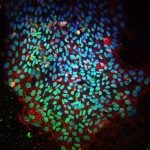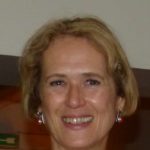Link to Pubmed [PMID] – 22692546
Link to DOI – 10.1038/ncomms1890
Nat Commun 2012 Jun; 3(): 903
The accessibility to stem cells from healthy or diseased individuals, and the maintenance of their potency are challenging issues for stem cell biology. Here we report the isolation of viable and functional skeletal myogenic cells from humans up to 17 days, and mice up to 14 days post mortem, much longer beyond previous reports. Muscle stem cells are enriched in post mortem tissue, suggesting a selective survival advantage compared with other cell types. Transplantation of mouse muscle and haematopoietic stem cells regenerates tissues robustly. Cellular quiescence contributes to this cell viability where cells adopt a reversible dormant state characterized by reduced metabolic activity, a prolonged lag phase before the first cell division, elevated levels of reactive oxygen species and a transcriptional status less primed for commitment. Finally, severe hypoxia, or anoxia is critical for maintaining stem cell viability and regenerative capacity. Thus, these cells provide a useful resource for studying stem cell biology.

